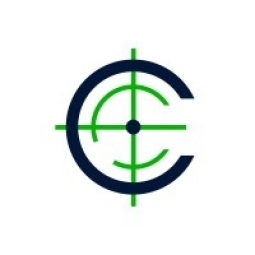公司规模
1,000+
地区
- America
国家
- United States
产品
- Corero DDoS solution
- Corero appliance
技术栈
- DDoS mitigation
- Network security
实施规模
- Enterprise-wide Deployment
影响指标
- Customer Satisfaction
- Productivity Improvements
技术
- 网络安全和隐私 - 网络安全
适用行业
- 电信
适用功能
- 商业运营
用例
- 网络安全
服务
- 系统集成
- 测试与认证
关于客户
Liquid Web Inc. is a privately held managed web hosting and datacenter company founded in 1997. It operates three wholly owned datacenters in Lansing, Michigan, and a fourth location in Scottsdale, Arizona. The company fills a niche in the public cloud space focused on providing premium web hosting capabilities upmarket from traditional shared hosting. It currently has 25,000–30,000 customers and has been named one of the Inc. 5000 fastest-growing companies for the past 10 years. Liquid Web support teams are certified by Cisco and Red Hat and available onsite at each of the datacenters on a 24 x 7 basis. The company's 400 support engineers have specialties in technical support, server setup, database administration, advanced networking, security, migrations, system restoration, and other areas.
挑战
Liquid Web Inc., a managed web hosting and datacenter company, was facing a significant increase in distributed denial-of-service (DDoS) attacks, affecting its core business. These attacks could be either volumetric or nonvolumetric in nature. The company had an existing solution in place from a security provider that was used for attack detection. However, that solution was not doing enough to deal with mounting DDoS problems. When DDoS attacks were made on the Liquid Web network, incidents needed to be identified, isolated, and mitigated. Before Liquid Web onboarded the Corero solution, such attacks were routinely detected but not prevented. Another challenge was that 'innocent bystanders' (i.e., other customers on the network) could be impacted by a network slowdown even though they weren't the specific target of a DDoS attack.
解决方案
After a lengthy evaluation process, the IT implementation team opted for a hybrid scenario. The hybrid scenario involved keeping the company's existing on-premise solution, which had been traditionally used for detection. The plan was to add a Corero DDoS solution, which would be used in a complementary fashion by adding an automatic mitigation capability. This approach gave the company a multilayer DDoS mitigation strategy that prevented illicit traffic from entering the network while the existing solution continued to be used for detection and mitigation. One of the key justifications for this approach was the avoidance of false positives. If traffic is blocked as a result of a false positive, customers will be irate. Establishing the right mix, therefore, is a key success factor for the company.
运营影响
数量效益

Case Study missing?
Start adding your own!
Register with your work email and create a new case study profile for your business.
相关案例.

Case Study
Vodafone Hosted On AWS
Vodafone found that traffic for the applications peak during the four-month period when the international cricket season is at its height in Australia. During the 2011/2012 cricket season, 700,000 consumers downloaded the Cricket Live Australia application. Vodafone needed to be able to meet customer demand, but didn’t want to invest in additional resources that would be underutilized during cricket’s off-season.

Case Study
SKT, Construction of Smart Office Environment
SK T-Tower is the headquarters of SK Telecom. Inside the building, different types of mobile devices, such as laptops, smartphones and tablets, are in use, and with the increase in WLAN traffic and the use of quality multimedia data, the volume of wireless data sees an explosive growth. Users want limitless Internet access in various places in addition to designated areas.







